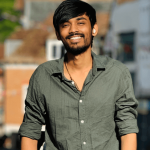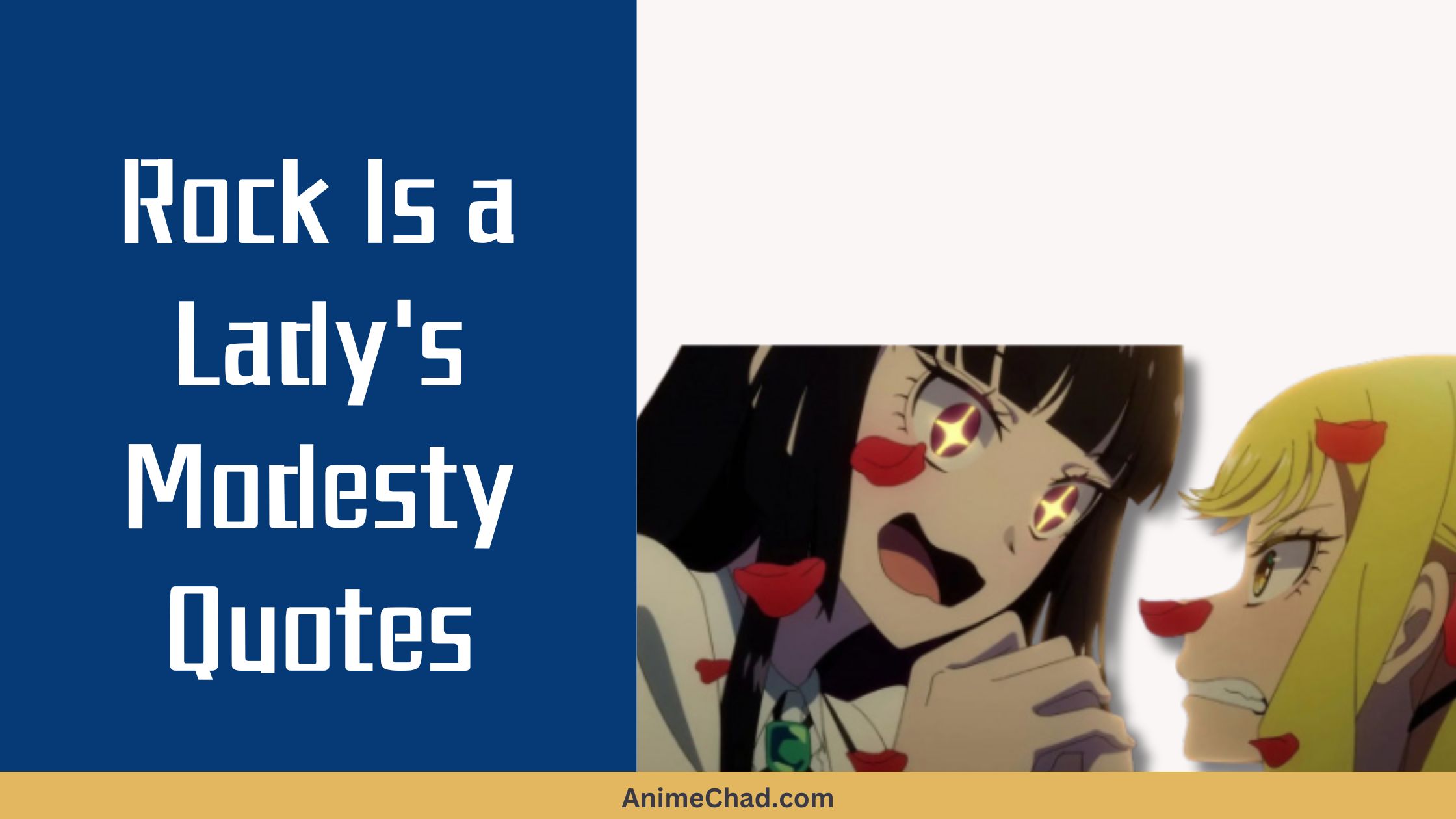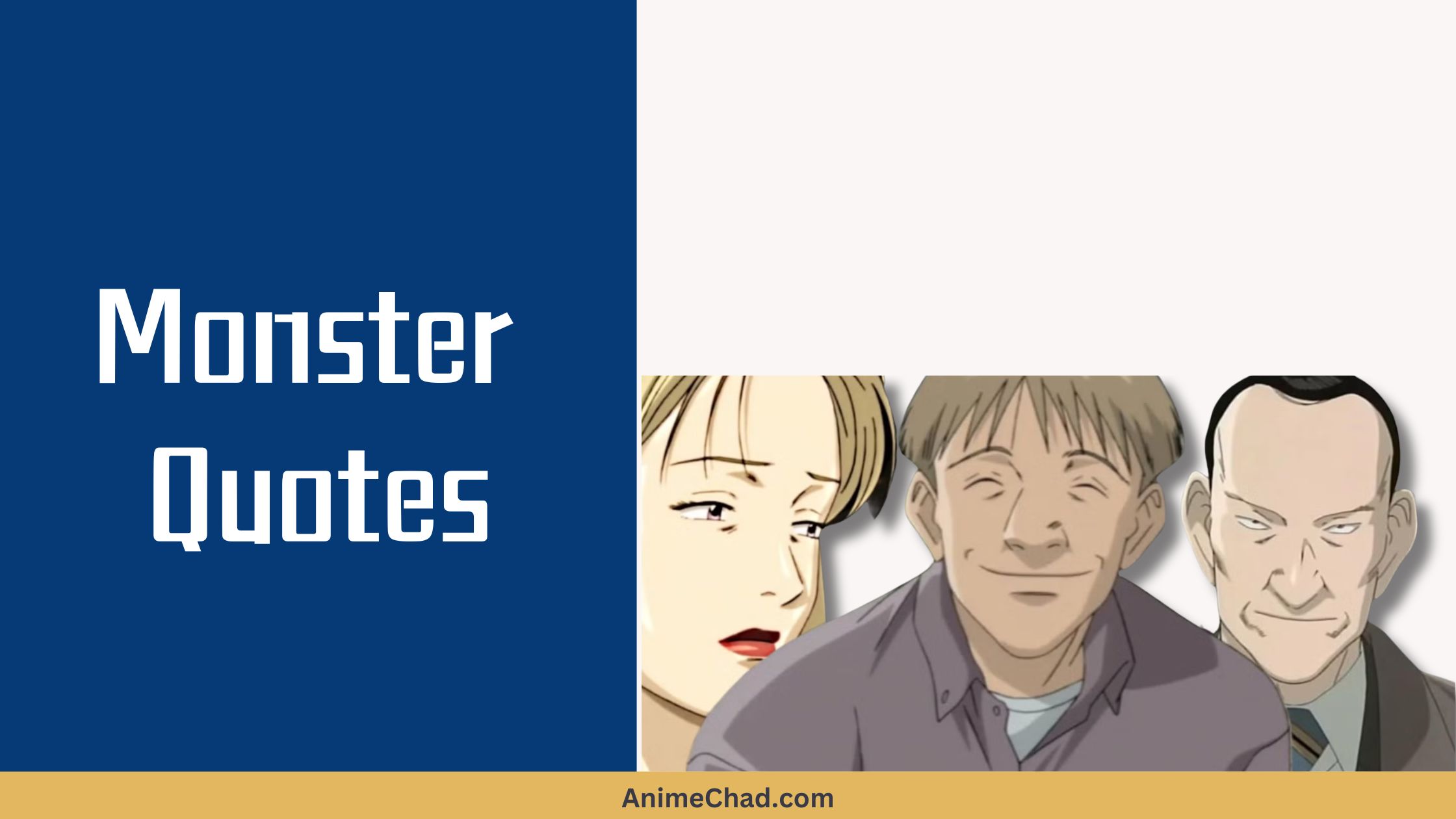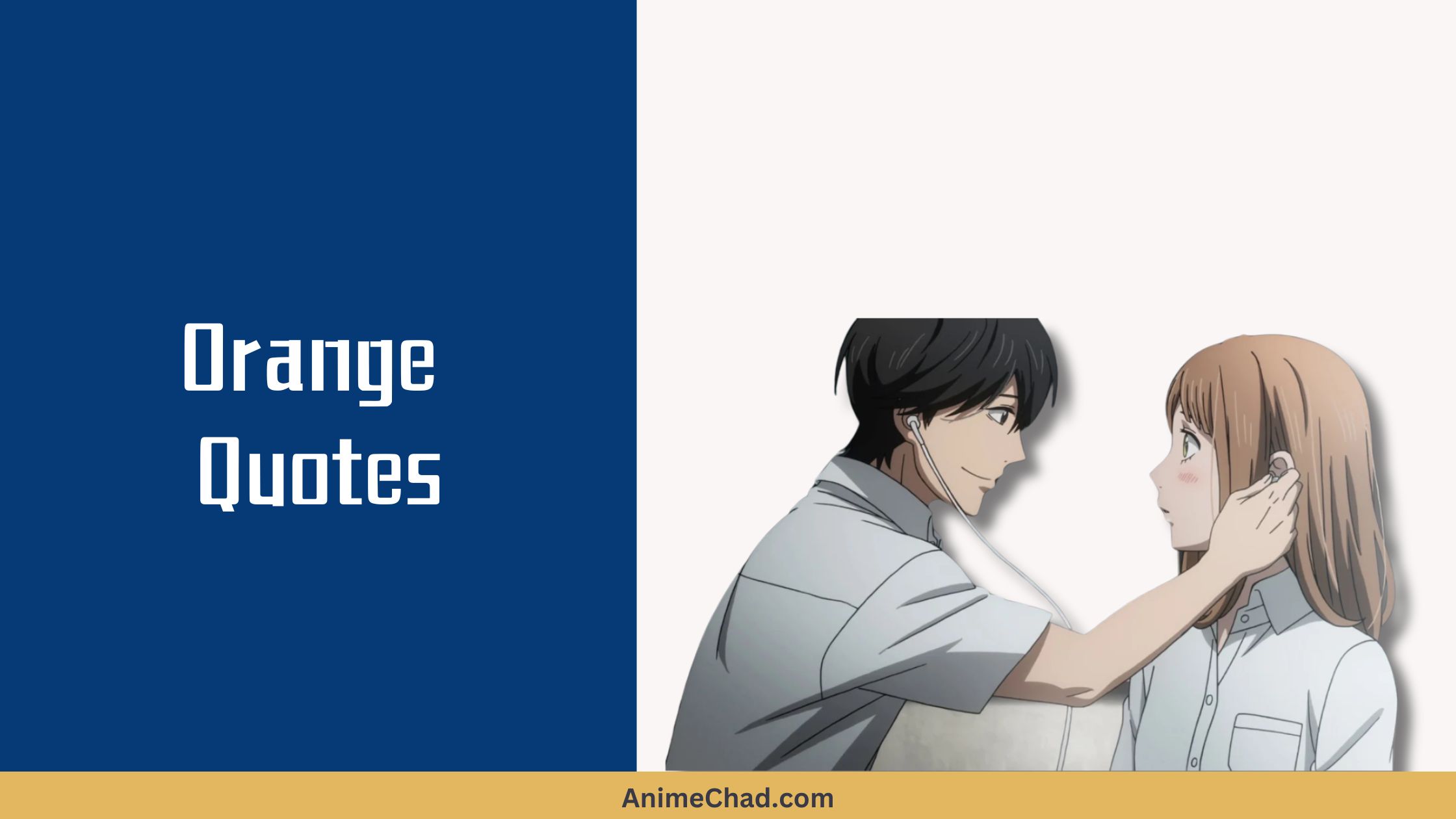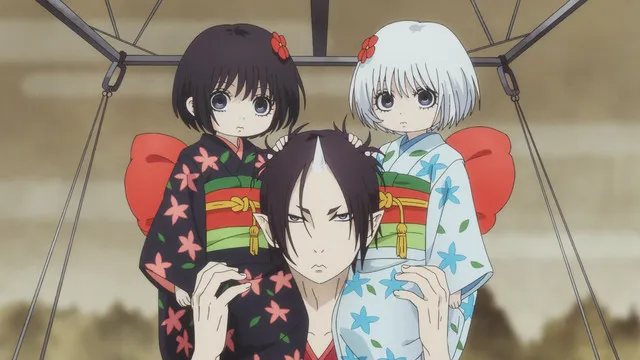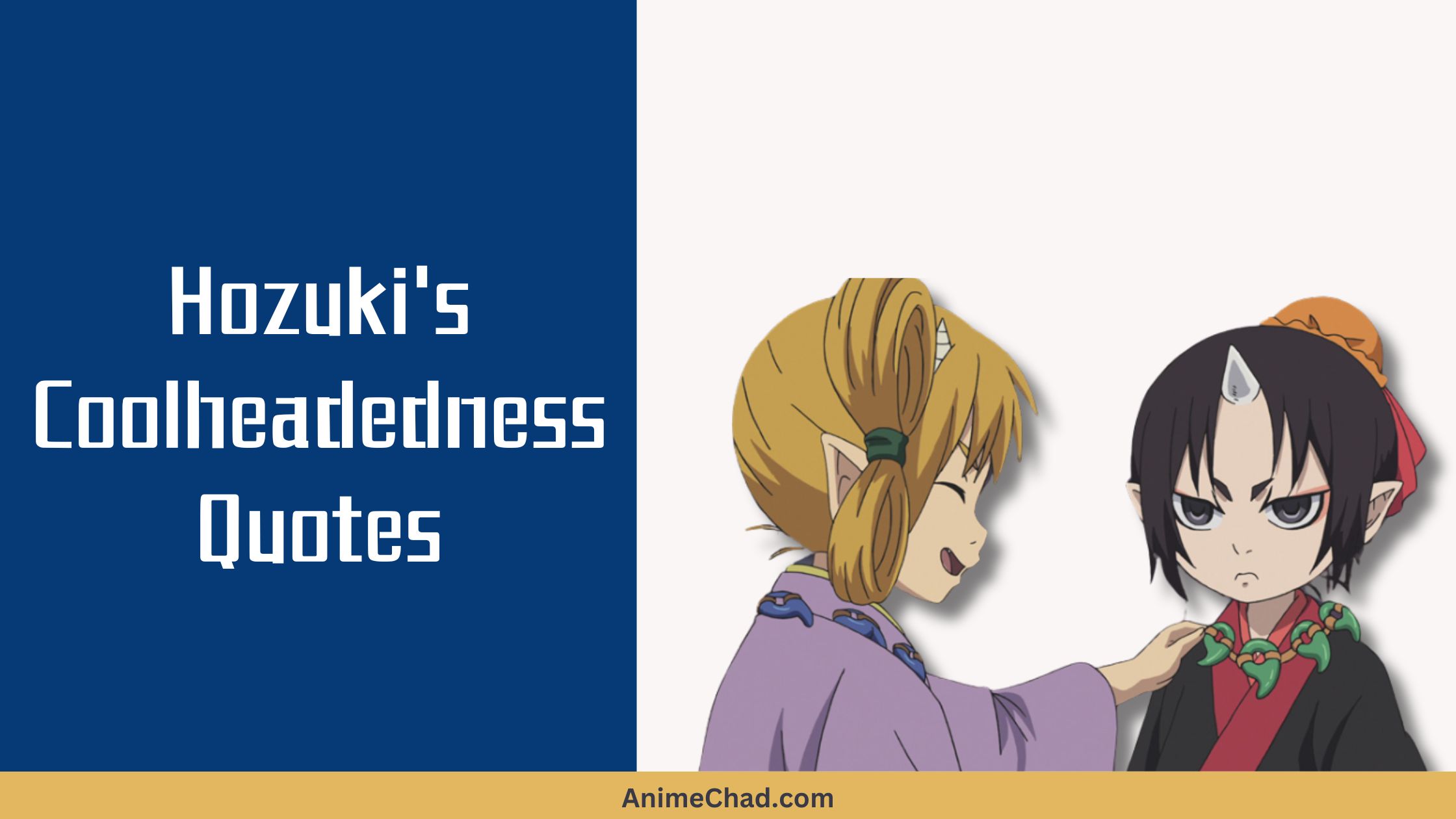Monster follows Dr. Kenzo Tenma, a gifted surgeon whose life is shattered after he saves a boy who becomes a remorseless killer.
The series delves into themes of morality, the nature of evil, identity, and the consequences of our choices.
This collection gathers the most profound and chilling quotes from Monster, showcasing its psychological depth, character evolution, and philosophical dilemmas.
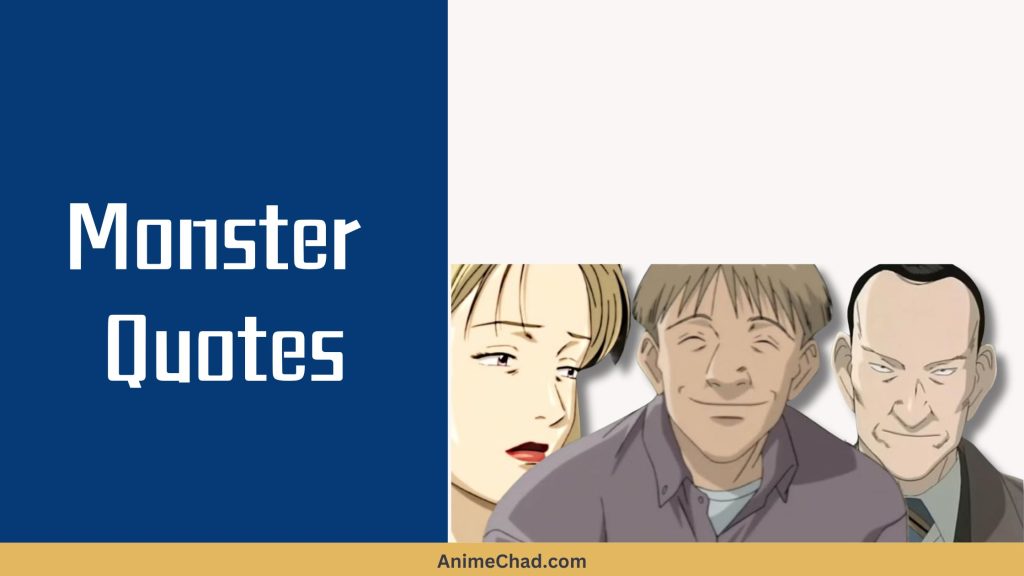
The only thing humans are equal in is death
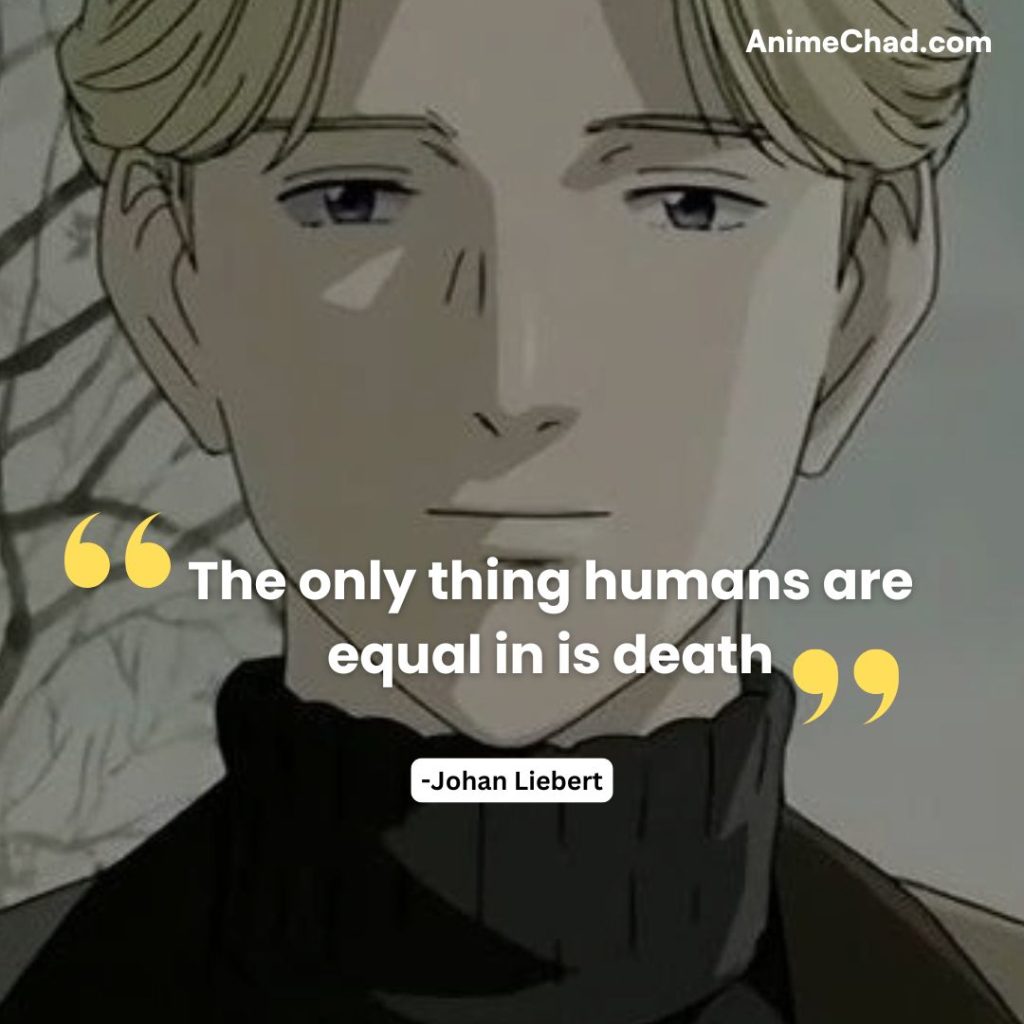
(Episode 49: The Cruelest Thing)
Johan Liebert
Johan’s nihilistic worldview, confronting Tenma with the ultimate equality that unites all people.
No one can escape their past
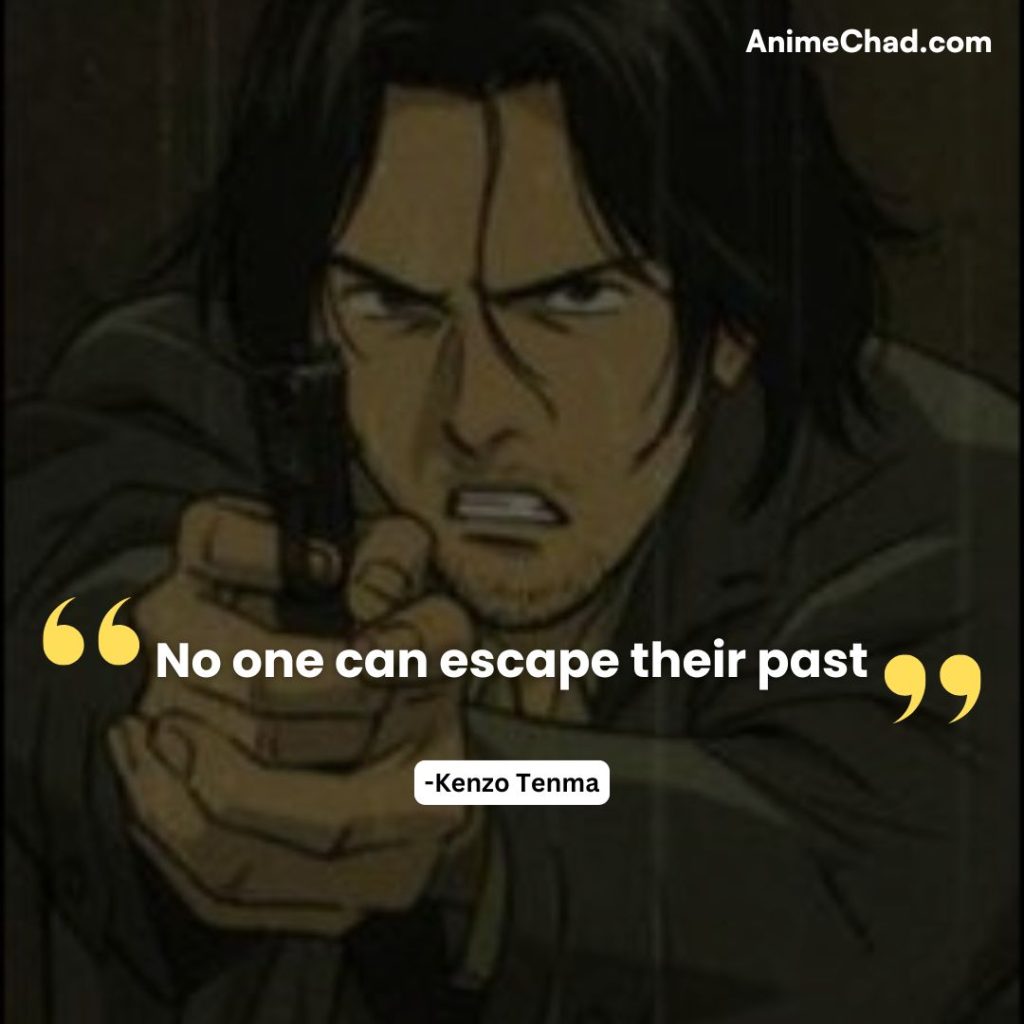
(Episode 2: Downfall)
Kenzo Tenma
Tenma’s realization about the inescapable consequences of our actions, reflecting the series’ central theme of accountability.
A monster does not cry
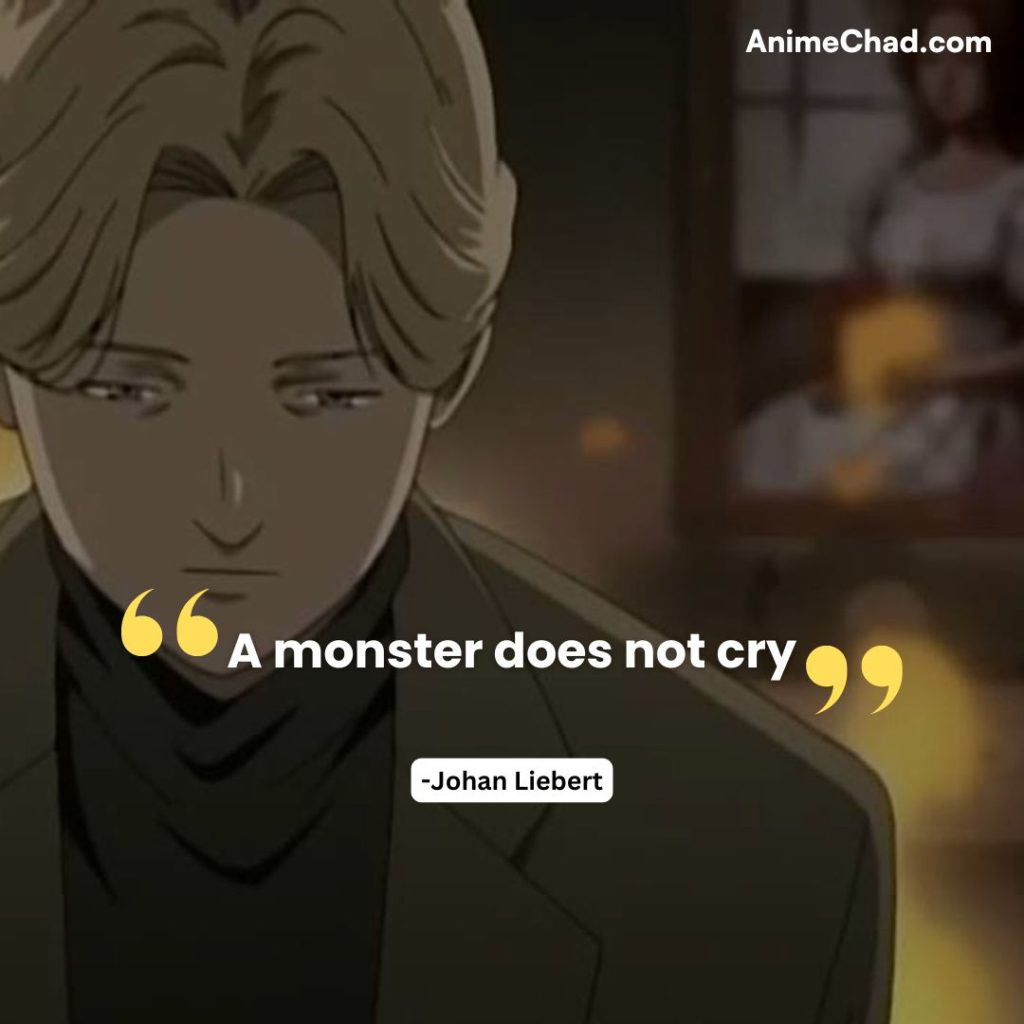
(Episode 37: A Nameless Monster)
Johan Liebert
Johan’s self-identification as inhuman, highlighting his emotional detachment and the tragedy of his character.
Tell me, what do you think is the ultimate fear? I thought I had been to the darkest place in the universe. But beyond that… I saw even blacker darkness
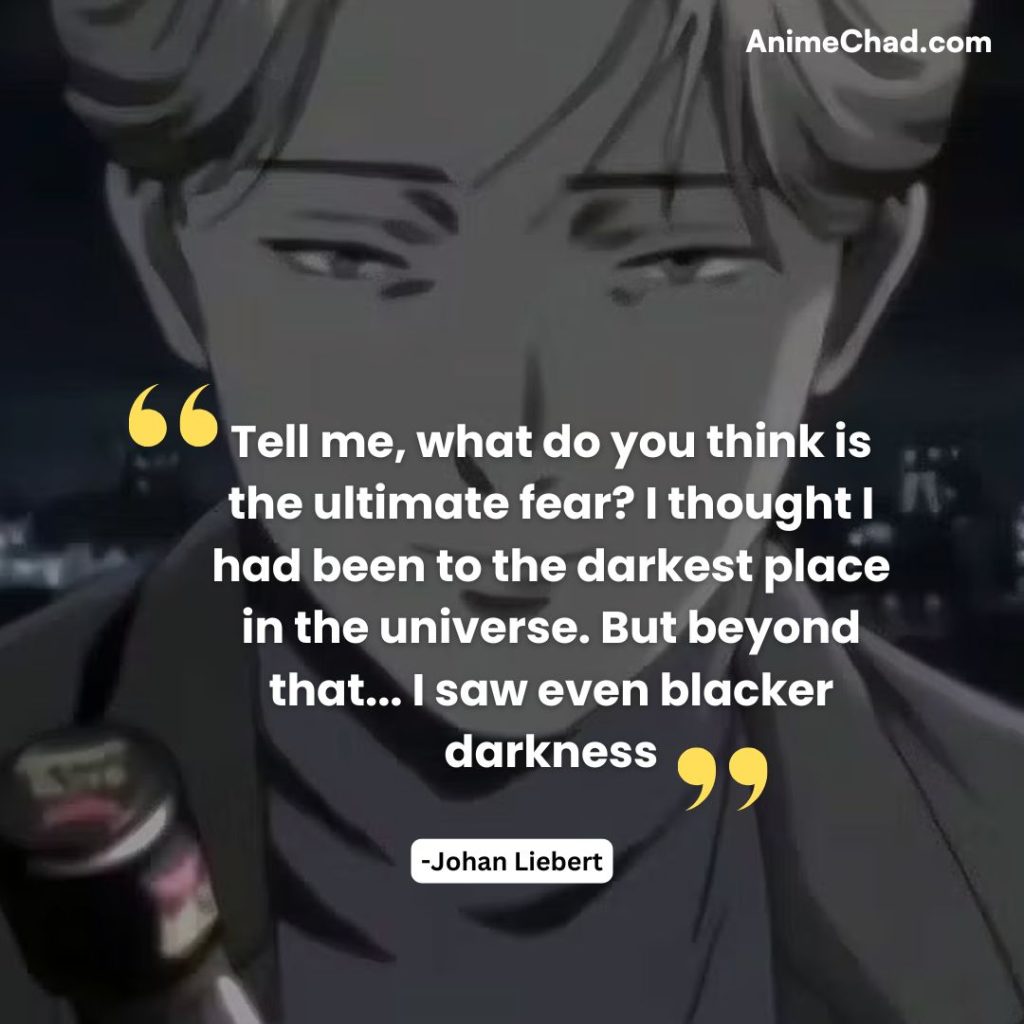
(Episode 34: At the Edge of Darkness)
Johan Liebert
Johan’s exploration of existential dread and the limitless depths of human fear39.
Do you think your sin will disappear if you lie?
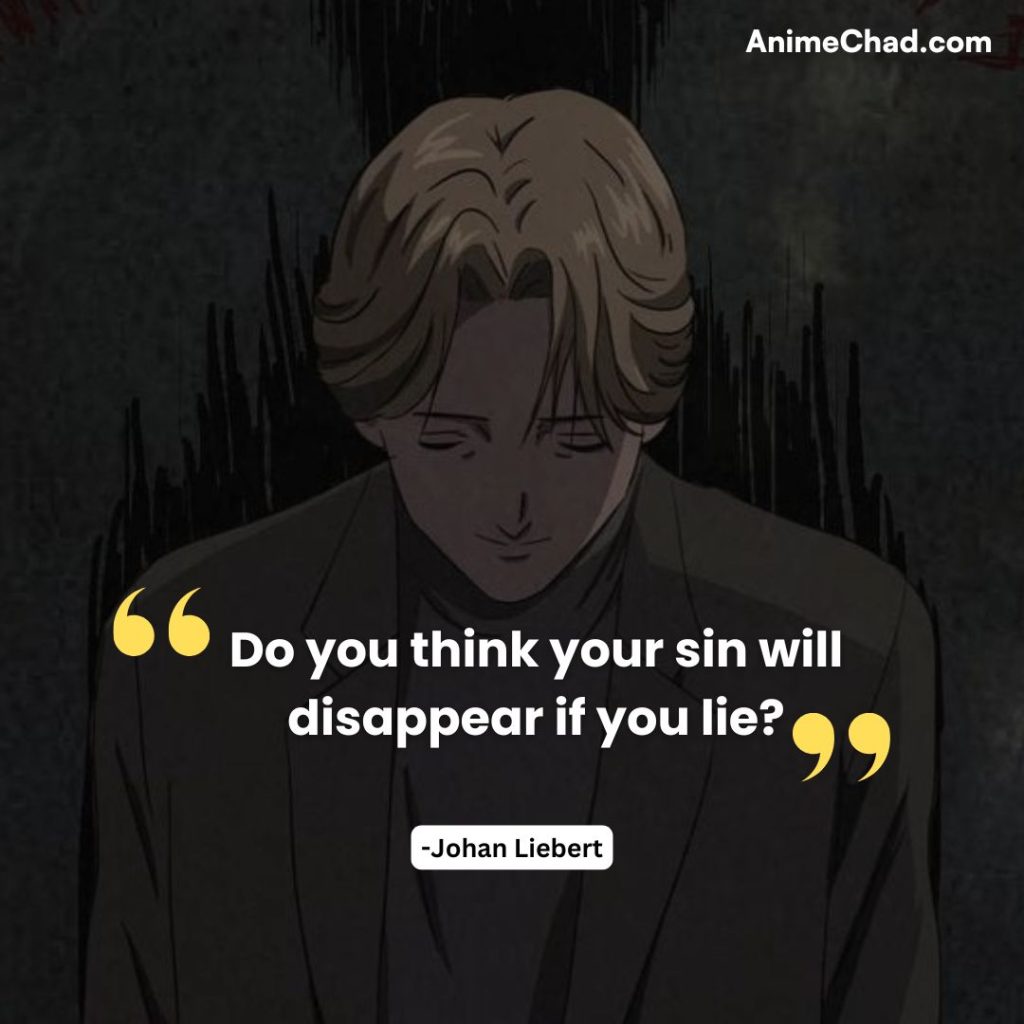
(Episode 46: The Door to Nightmares)
Johan Liebert
Johan confronts the futility of denial and the weight of guilt, a recurring motif in Monster.
Hatred is created when people gather. I just poured a little oil on it
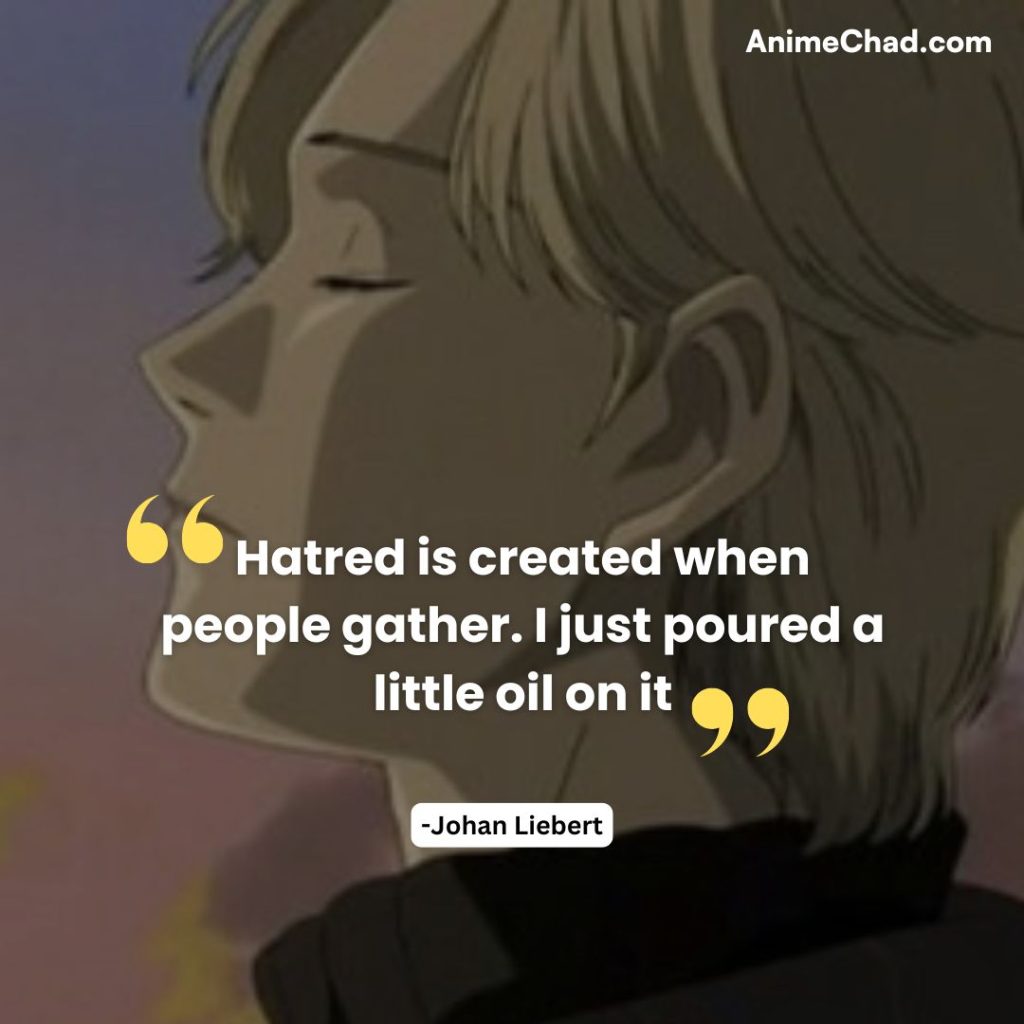
(Episode 21: A Wonderful Holiday)
Johan Liebert
Johan’s manipulation of others, exposing the roots of conflict and the fragility of peace.
When you’re in the darkness, you only sink deeper into it. Keep the light shining
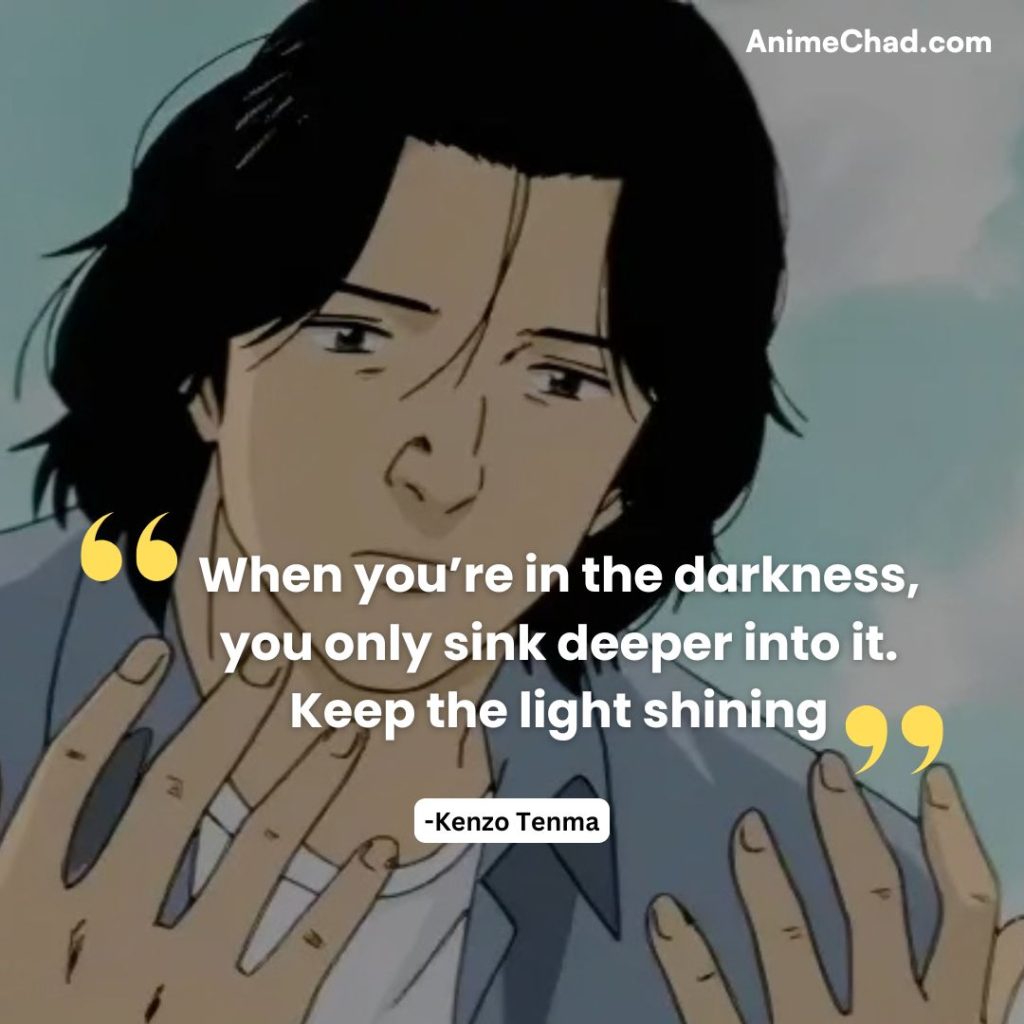
(Episode 20: Journey to Freiham)
Kenzo Tenma
Tenma’s message of hope and perseverance, even in the bleakest circumstances.
Almost everything in this world is meant to die. In this world, a life born is nothing more than an insignificant speck
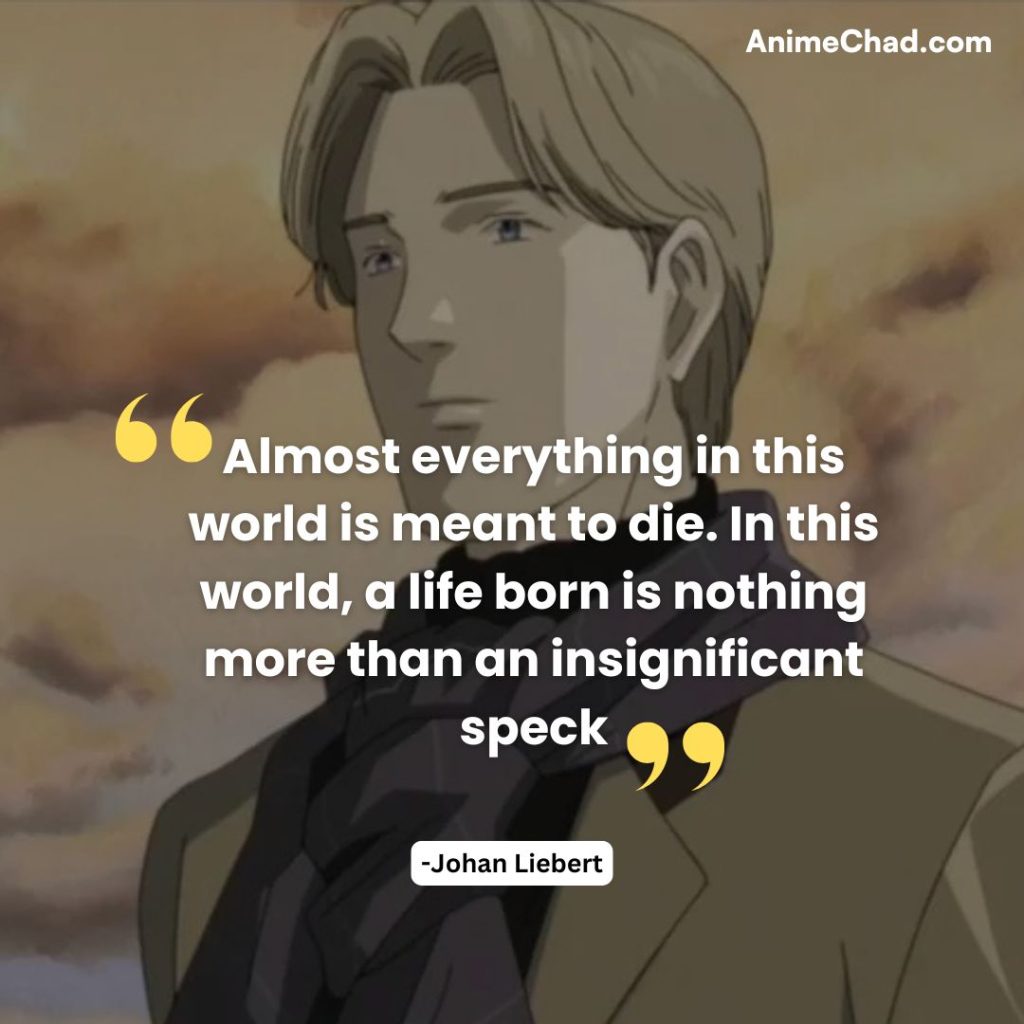
(Episode 49: The Cruelest Thing)
Johan Liebert
Johan’s existential nihilism, questioning the value of life and the inevitability of death.
The big secret to breaking the rules is to make it look as though you’re following them
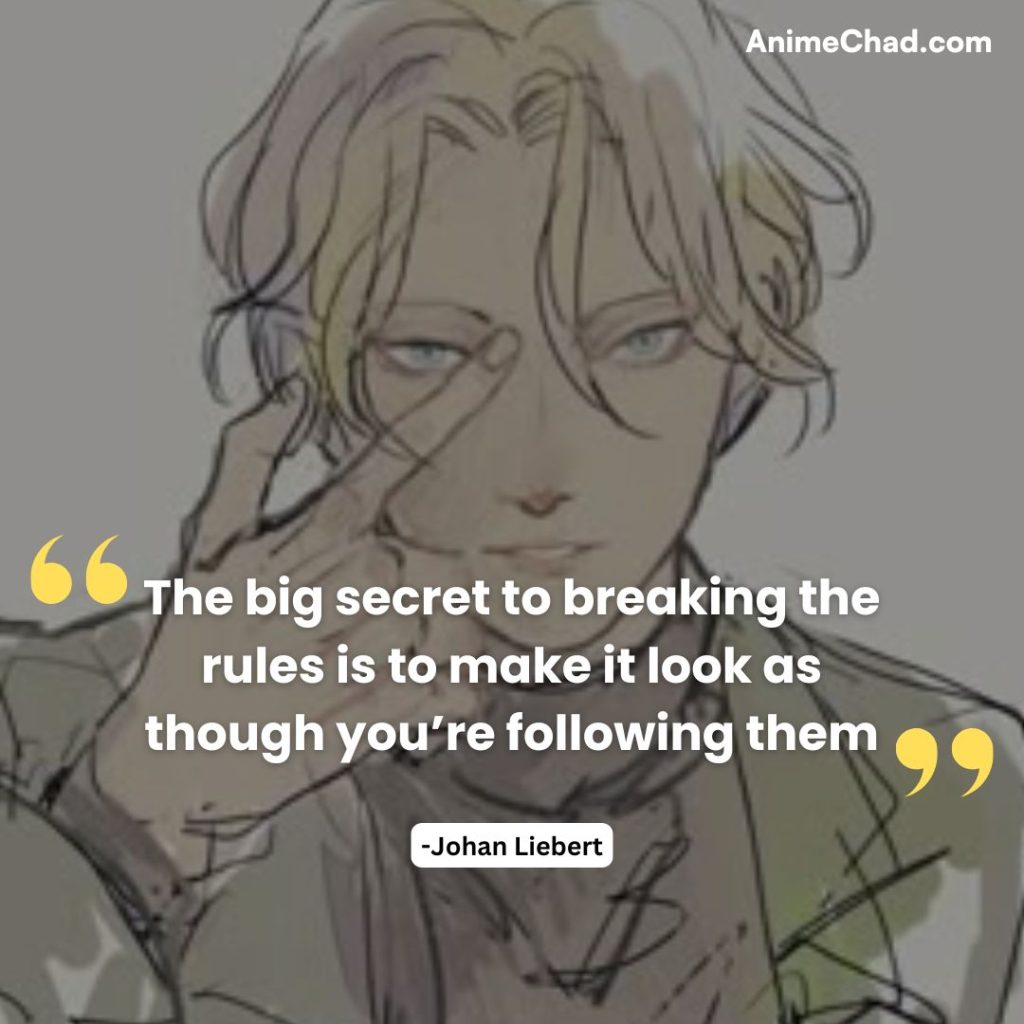
(Episode 29: Execution)
Johan Liebert
Johan’s insight into deception, revealing how evil can hide in plain sight.
What does it mean to be a monster?
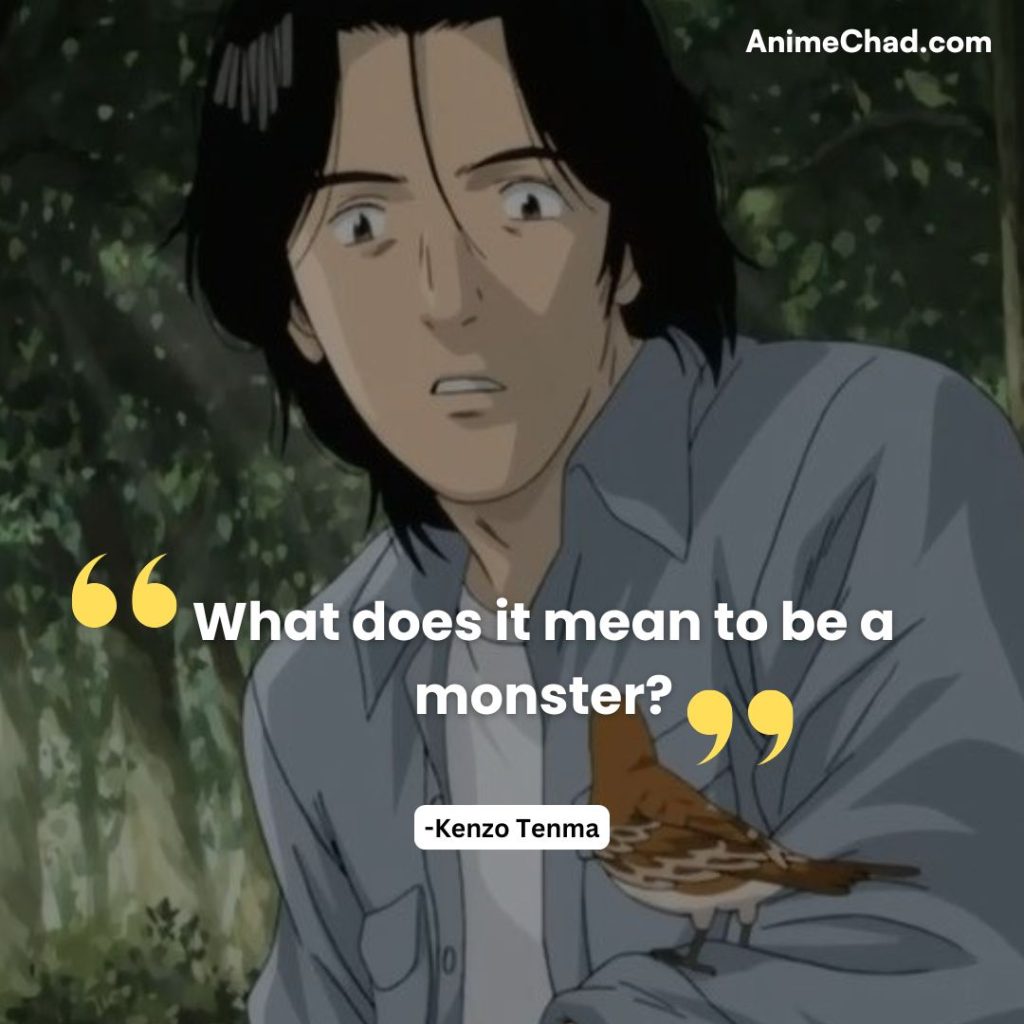
(Episode 37: A Nameless Monster)
Kenzo Tenma
Tenma’s philosophical struggle to define evil, central to his pursuit of Johan.
I saw hell right there in his eyes. Hell, in the eyes of a living human being
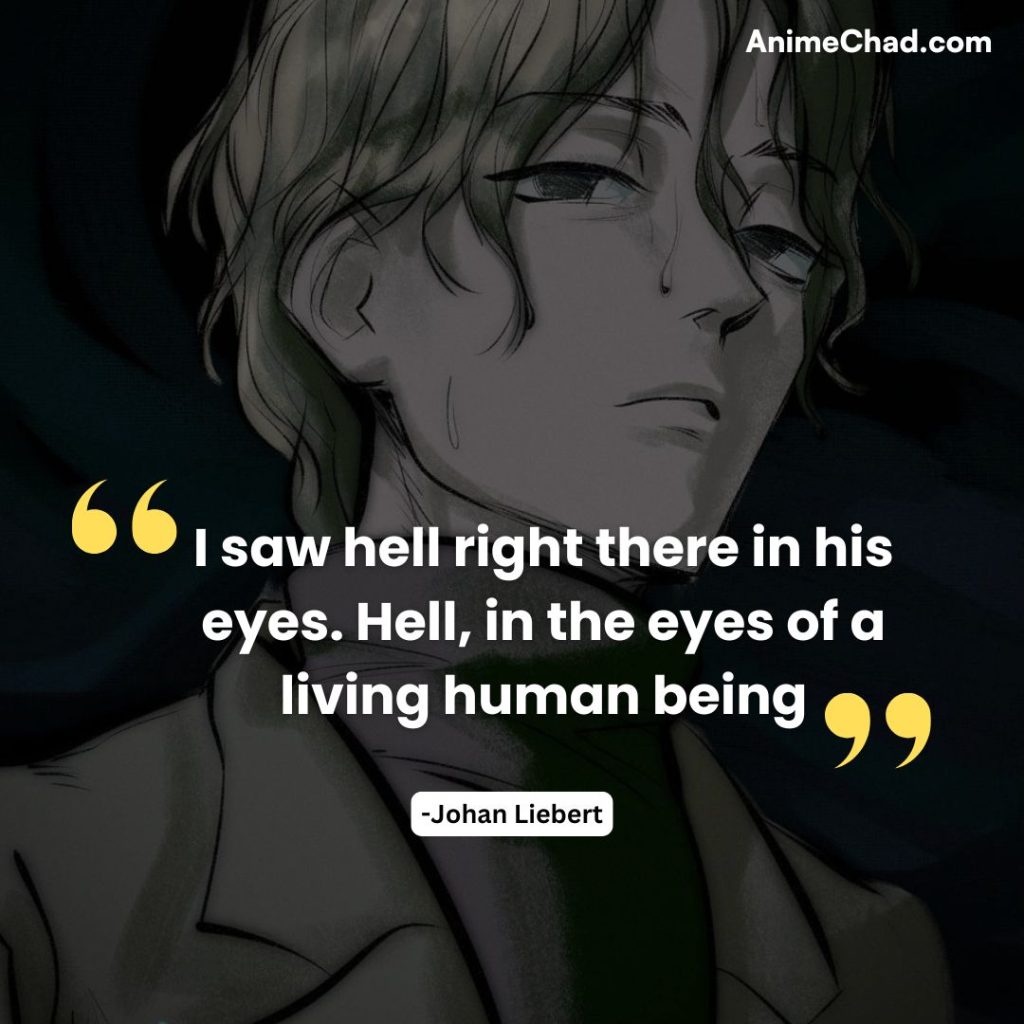
(Episode 37: A Nameless Monster)
Johan Liebert
Johan’s chilling description of witnessing pure suffering, underscoring the horror he embodies.
For you, all lives are created equal. That’s why I came back to life. But you’ve finally come to realize it now, haven’t you? Only one thing is equal for all, and that is death
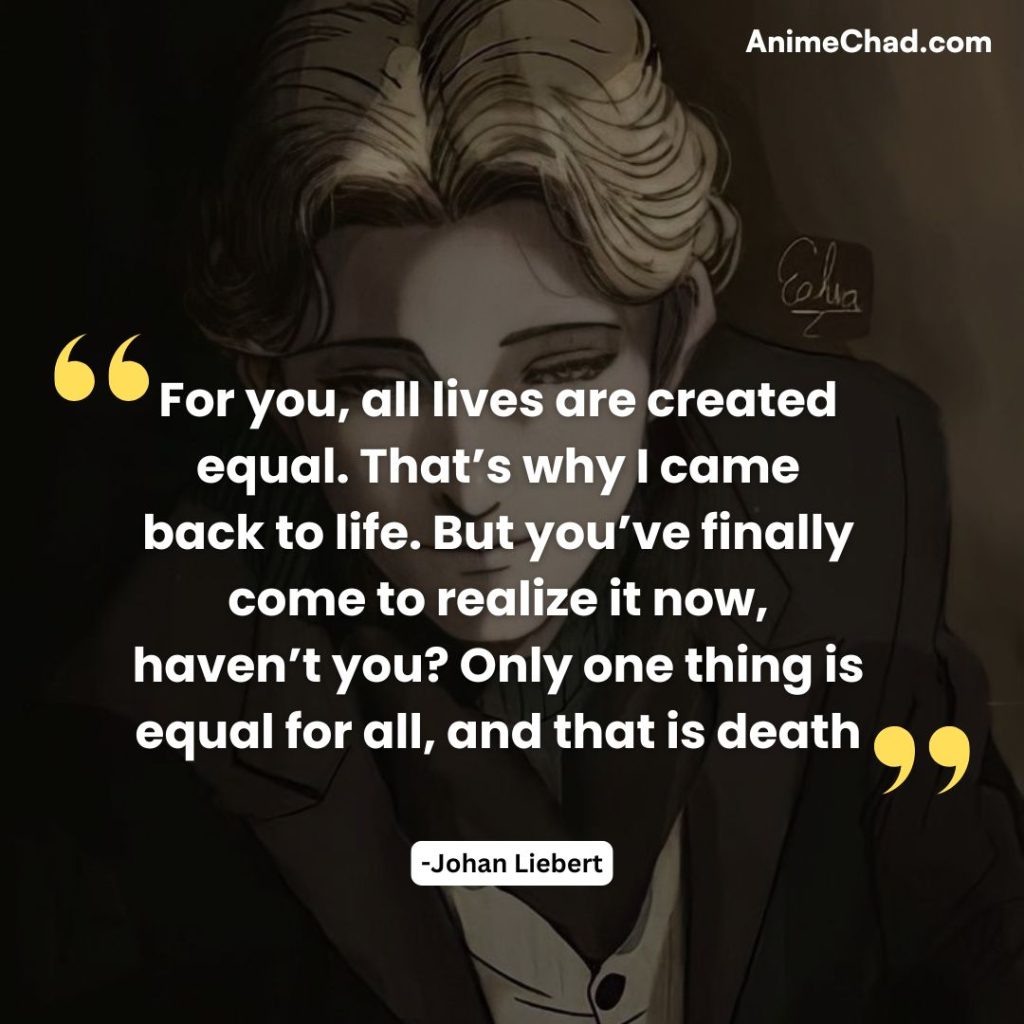
(Episode 49: The Cruelest Thing)
Johan Liebert
Johan taunts Tenma with the futility of his ideals, deepening the show’s moral ambiguity.
How weak the mind when it wants to forget. Maybe you didn’t forget. Maybe you’re just lying. Is it a lie you tell to everyone around you, or perhaps a lie you tell to yourself?
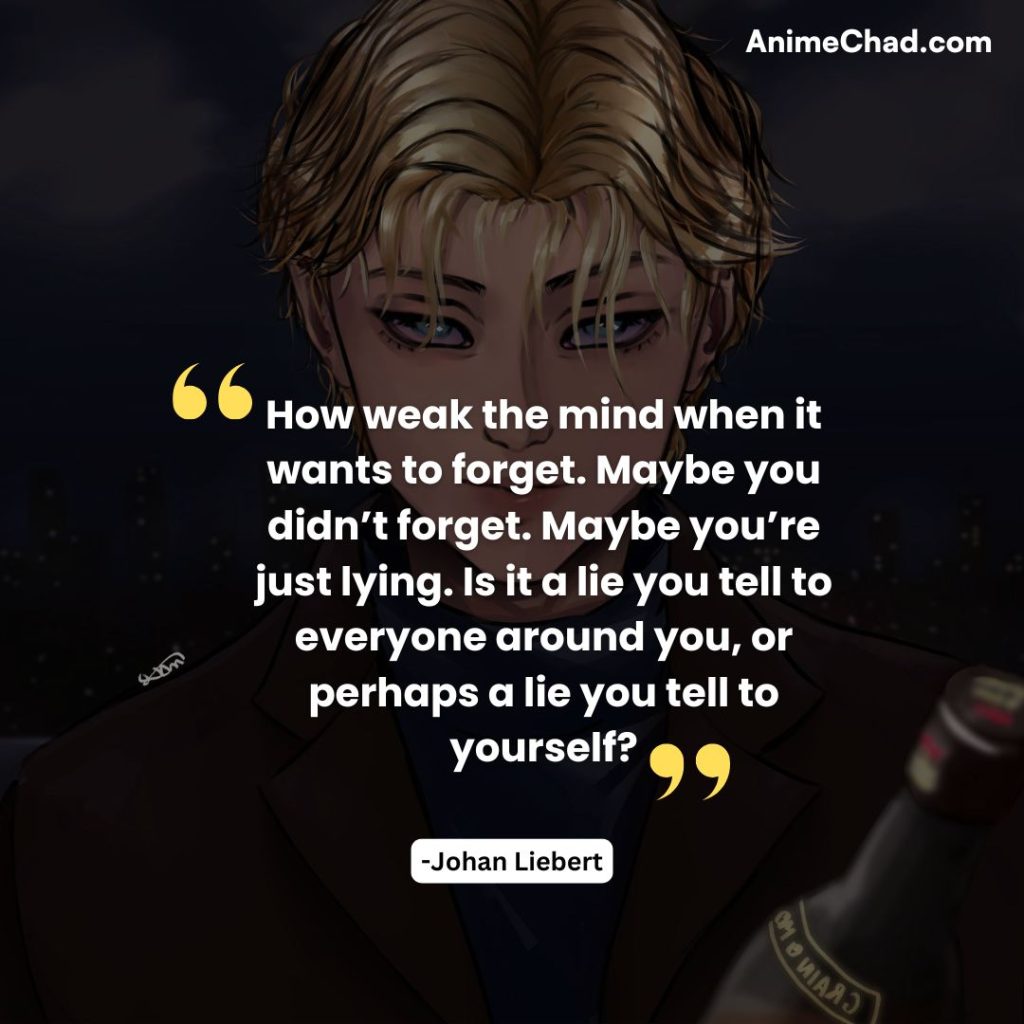
(Episode 41: The Abyss of Monsters)
Johan Liebert
Johan questions memory and self-deception, reflecting the series’ psychological complexity.
I wanted someone to stop me. I wanted someone to take the burden off my shoulders
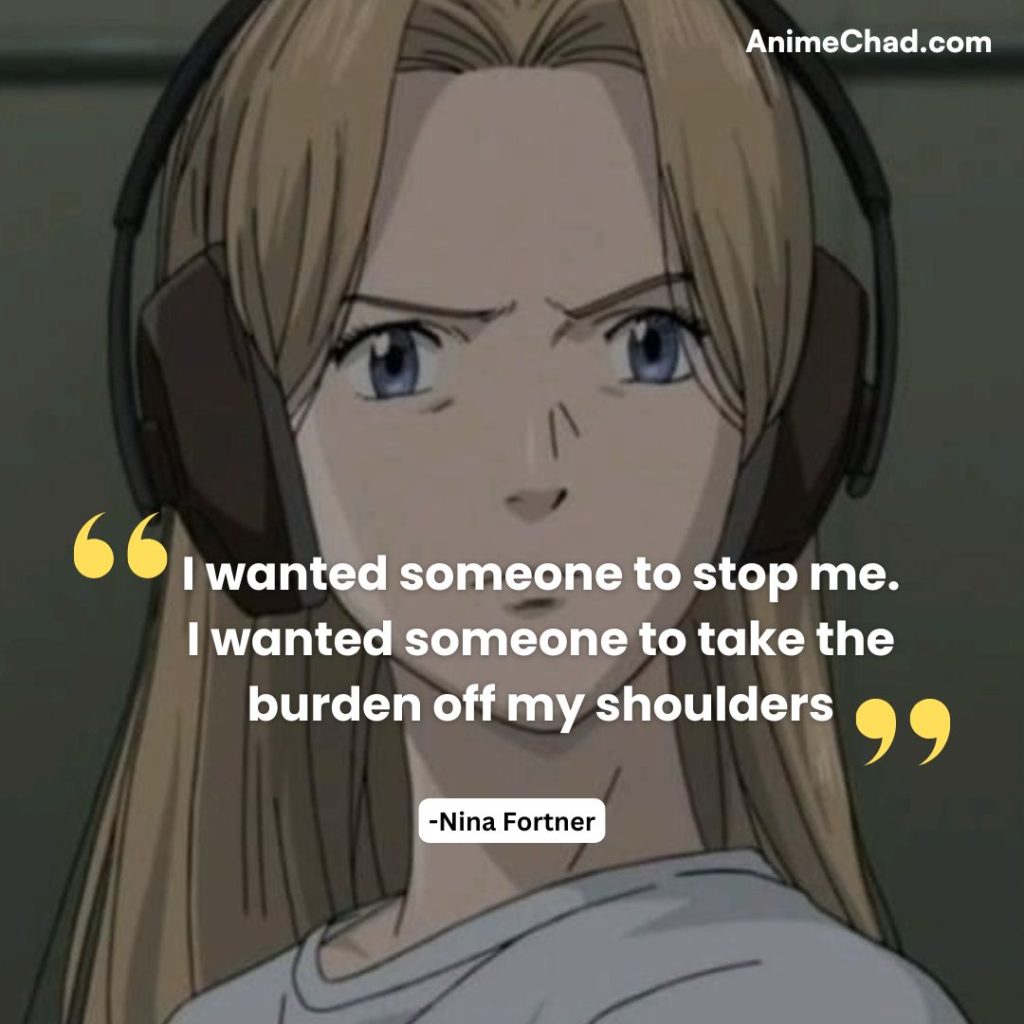
(Episode 50: The Monster’s Afterimage)
Nina Fortner (Anna Liebert)
Nina’s confession of guilt and longing for redemption, highlighting her internal conflict.
There’s nothing special about being born. Not a thing. Most of the universe is just death, nothing more
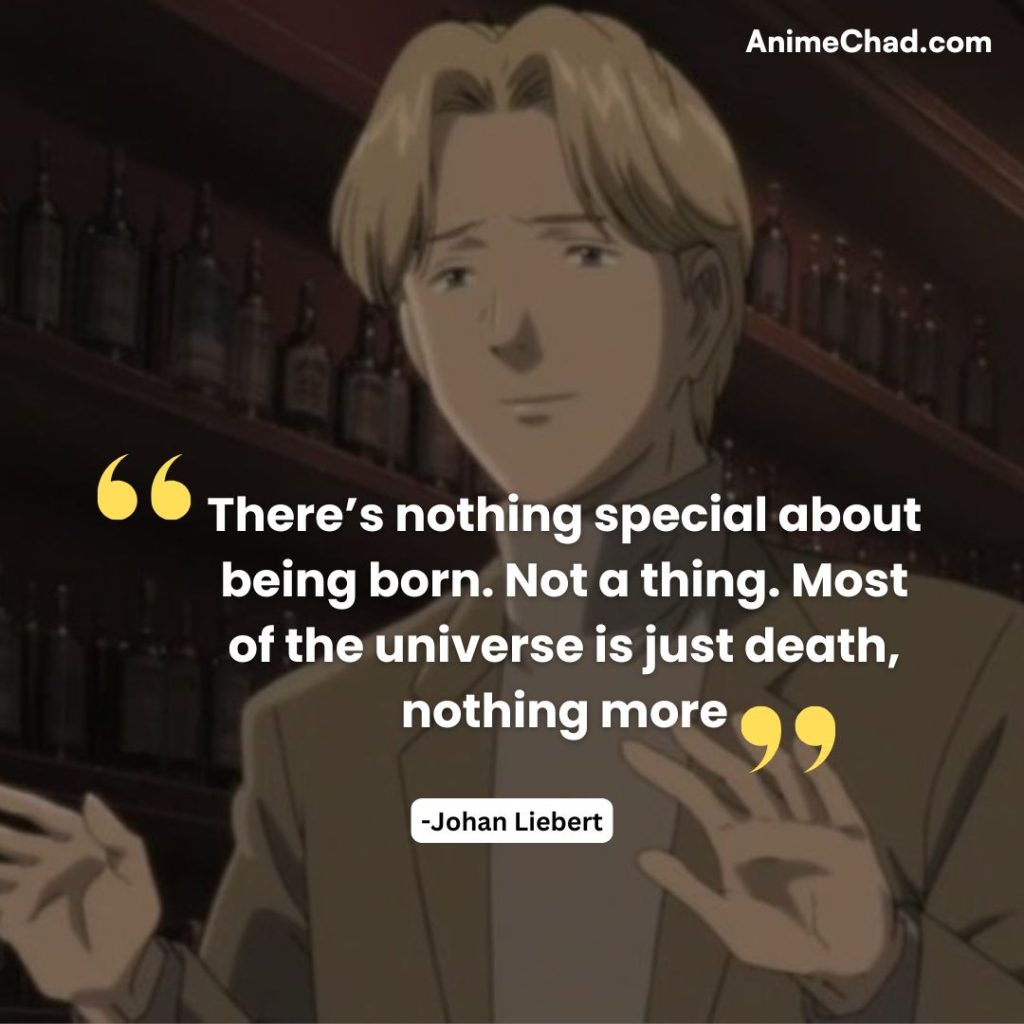
(Episode 49: The Cruelest Thing)
Johan Liebert
Johan’s bleak perspective on existence, reinforcing his detachment from humanity.
You educate a man, you educate a man. You educate a woman, you educate generations

(Episode 51: The Arrest)
Johan Liebert
Johan’s manipulation of ideology, reflecting the series’ critique of societal influence.
Killing people is simple. All you have to do is forget the taste of sugar
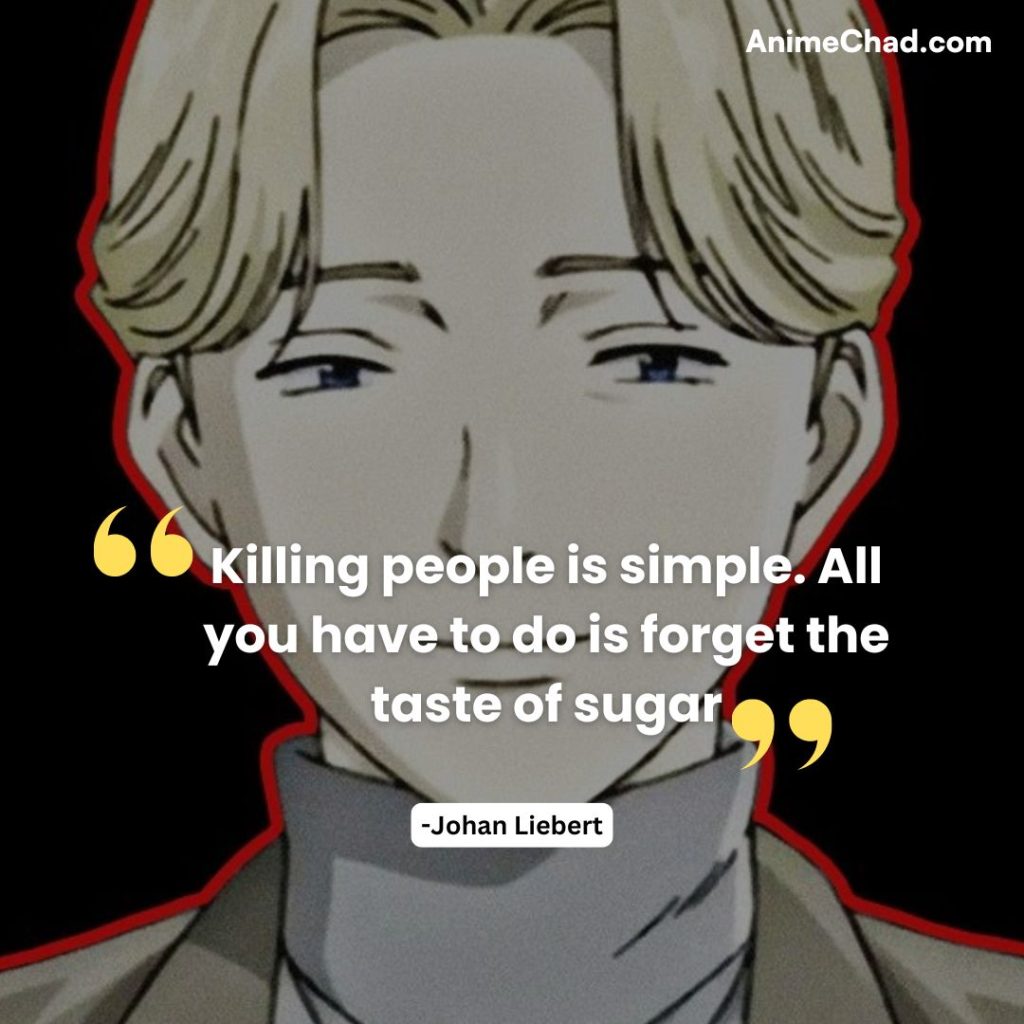
(Episode 41: The Abyss of Monsters)
Johan Liebert
Johan’s chilling reduction of murder to a loss of innocence, illustrating his moral void.
No matter how many times you try to erase it, hatred never disappears. What I have always feared the most is myself, because I, too, have hatred inside me
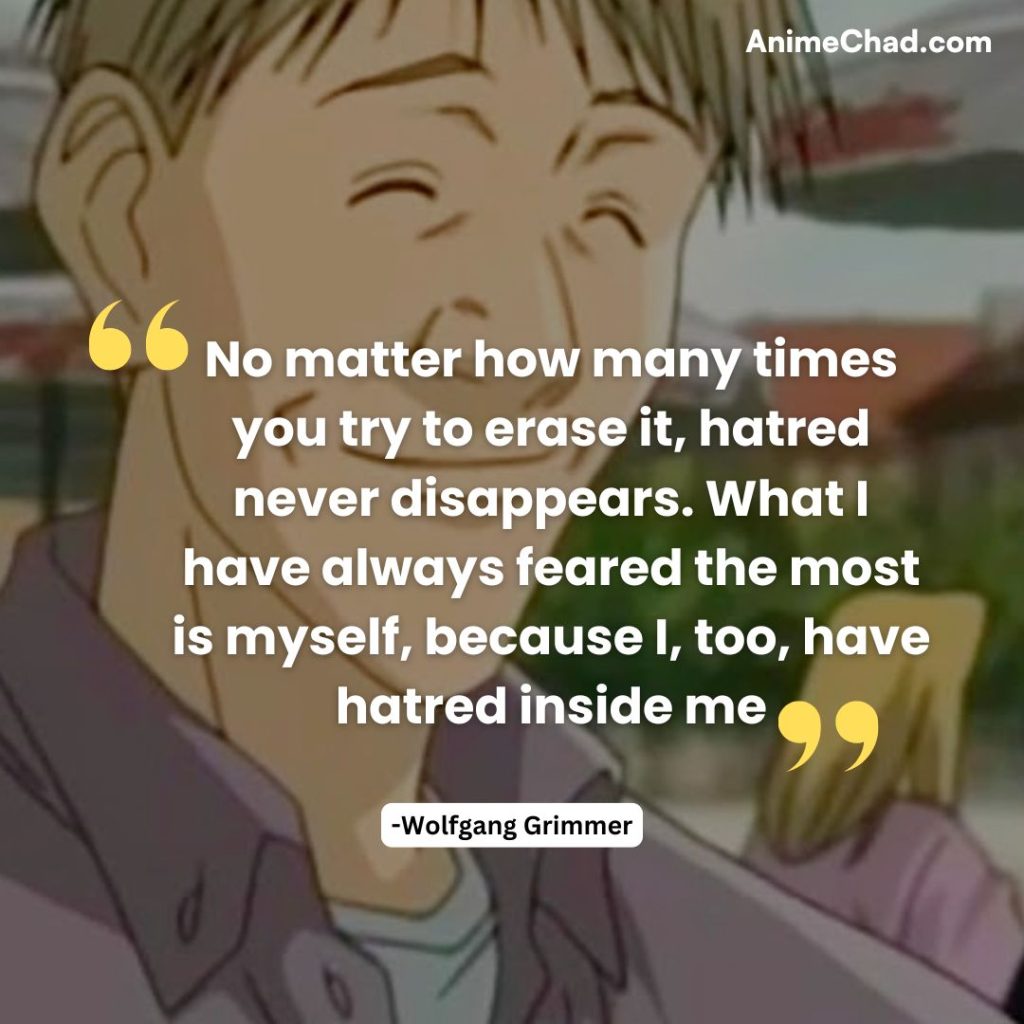
(Episode 43: The Man Who Knew Too Much)
Wolfgang Grimmer
Grimmer’s self-awareness about the darkness within, connecting to Monster’s exploration of internal evil.
In the last episode of the Magnificent Steiner he probably turned back into a normal human being
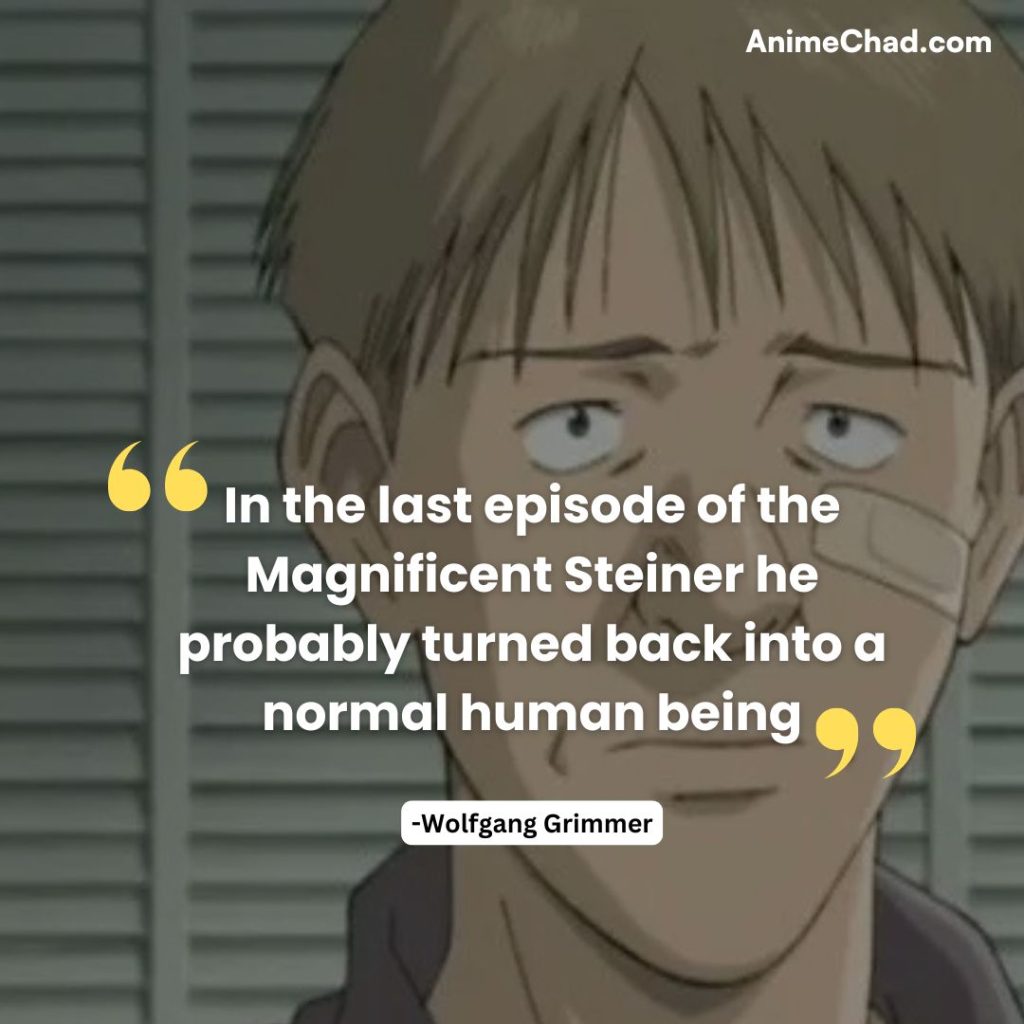
(Episode 43: The Man Who Knew Too Much)
Wolfgang Grimmer
Grimmer’s hope for redemption, paralleling the possibility of change in even the most broken people.
If you don’t want to be betrayed, then start by doubting the person you least want to doubt!
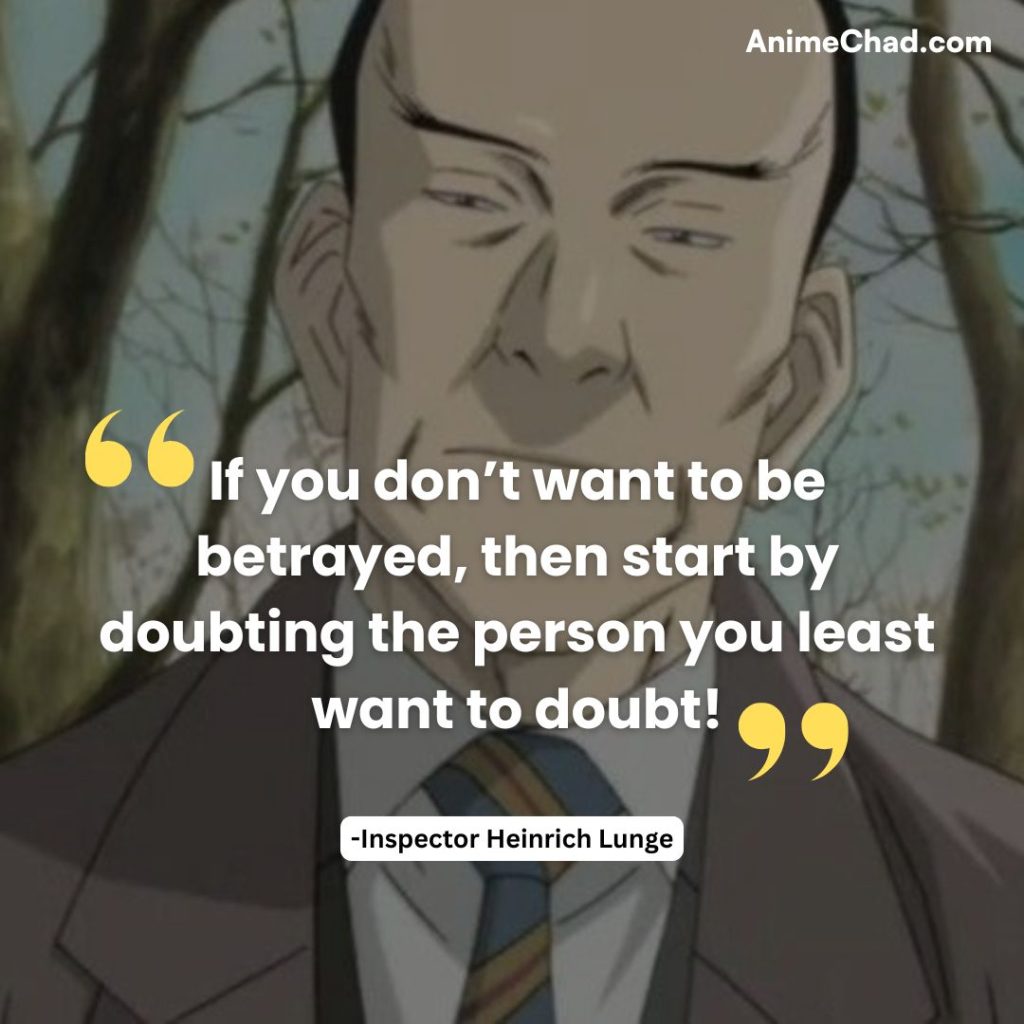
(Episode 58: The Demon in My Eyes)
Inspector Heinrich Lunge
Lunge’s advice on trust and suspicion, reflecting the paranoia that permeates Monster.
I am the only one who can see my brother’s true self
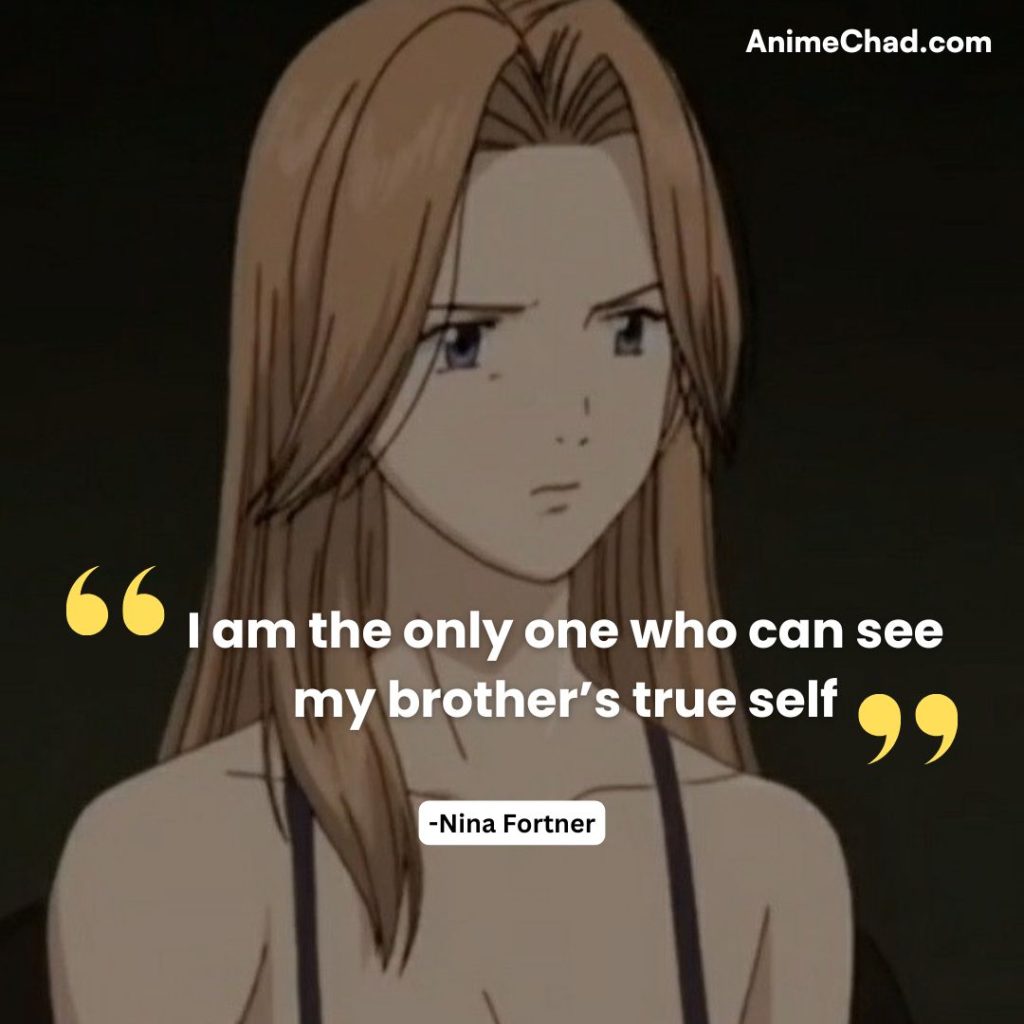
(Episode 37: A Nameless Monster)
Nina Fortner (Anna Liebert)
Nina’s unique connection to Johan, emphasizing the complexity of their sibling relationship2.
Munch-Munch, Chomp-Chomp, Gobble-Gobble, Gulp
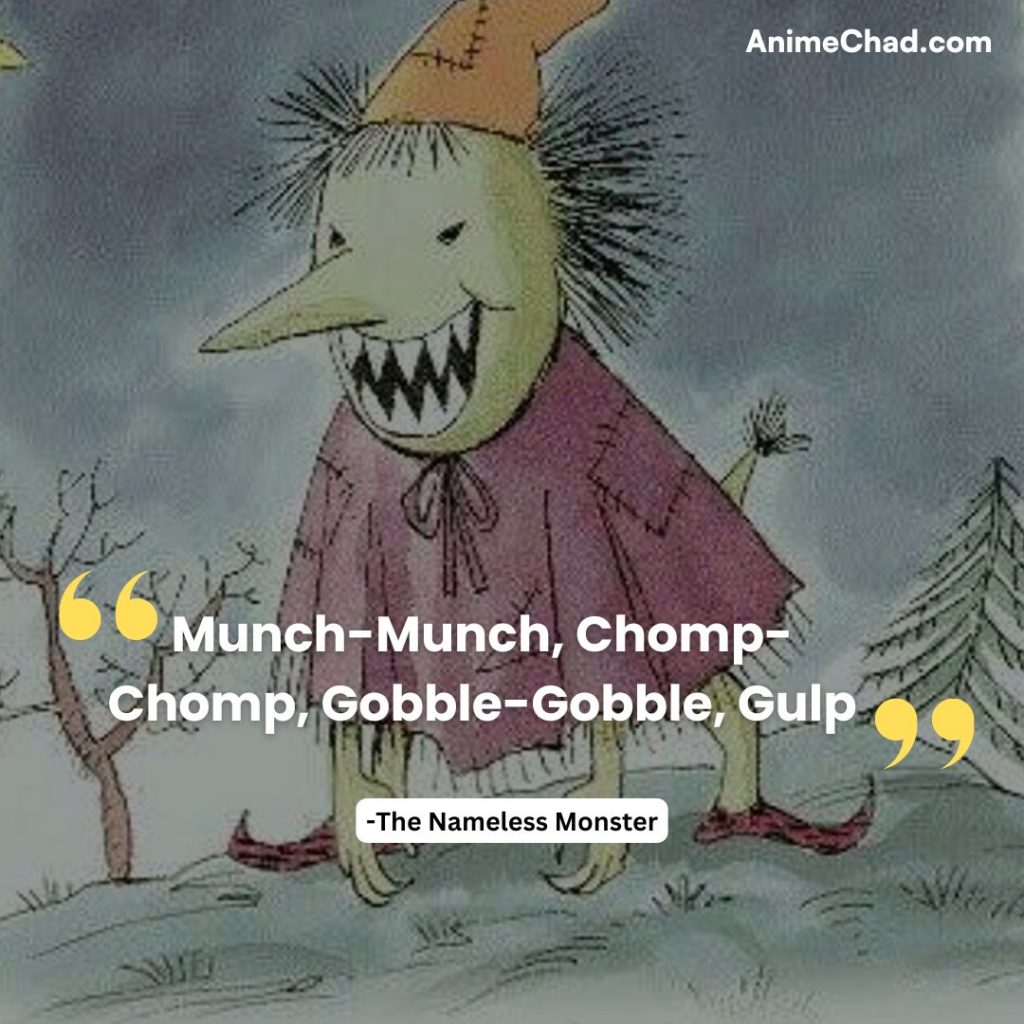
(Episode 37: A Nameless Monster)
The Nameless Monster (Story)
A chilling refrain from Johan’s childhood story, symbolizing the endless hunger of evil.
But you know, the hard part comes after you conquer the world
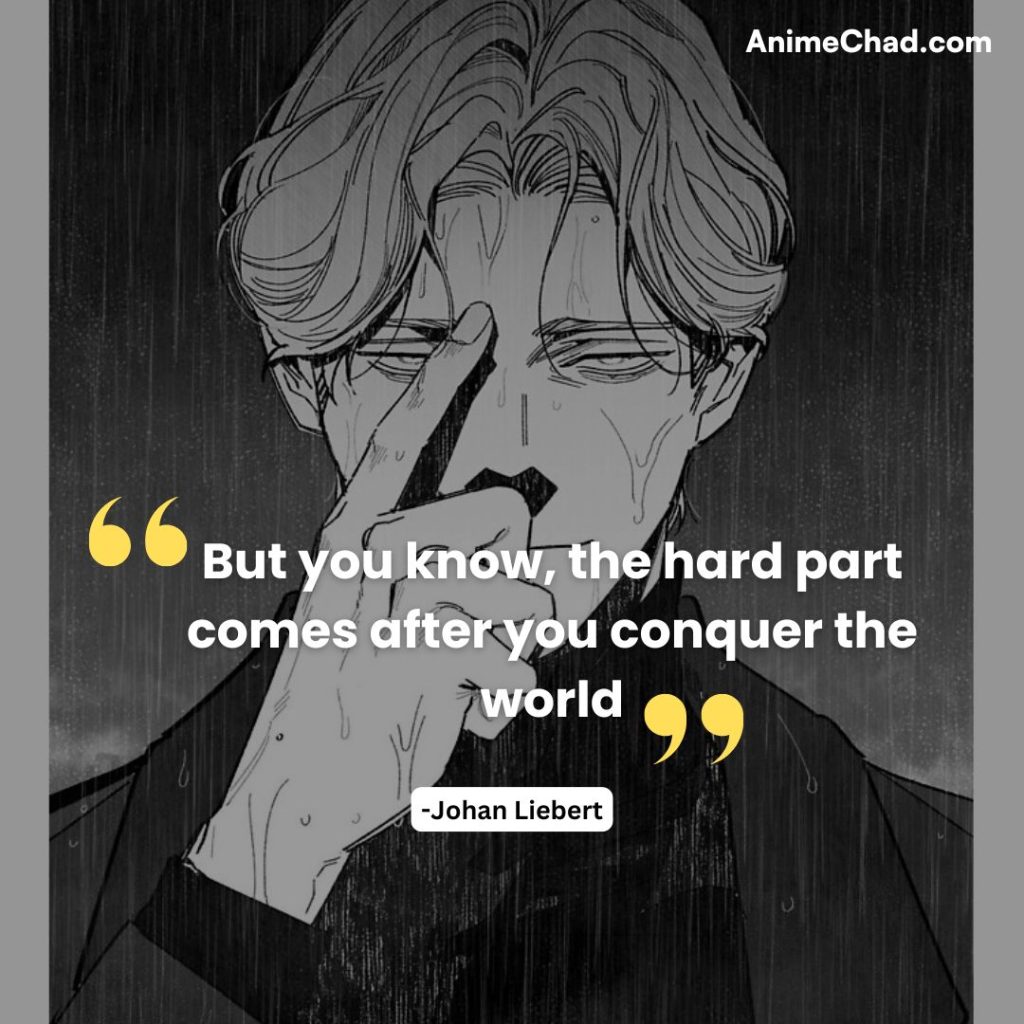
(Episode 29: Execution)
Johan Liebert
Johan’s cynicism about power, critiquing the emptiness that follows ambition.
A child’s growth is defined entirely by the adult that raises him
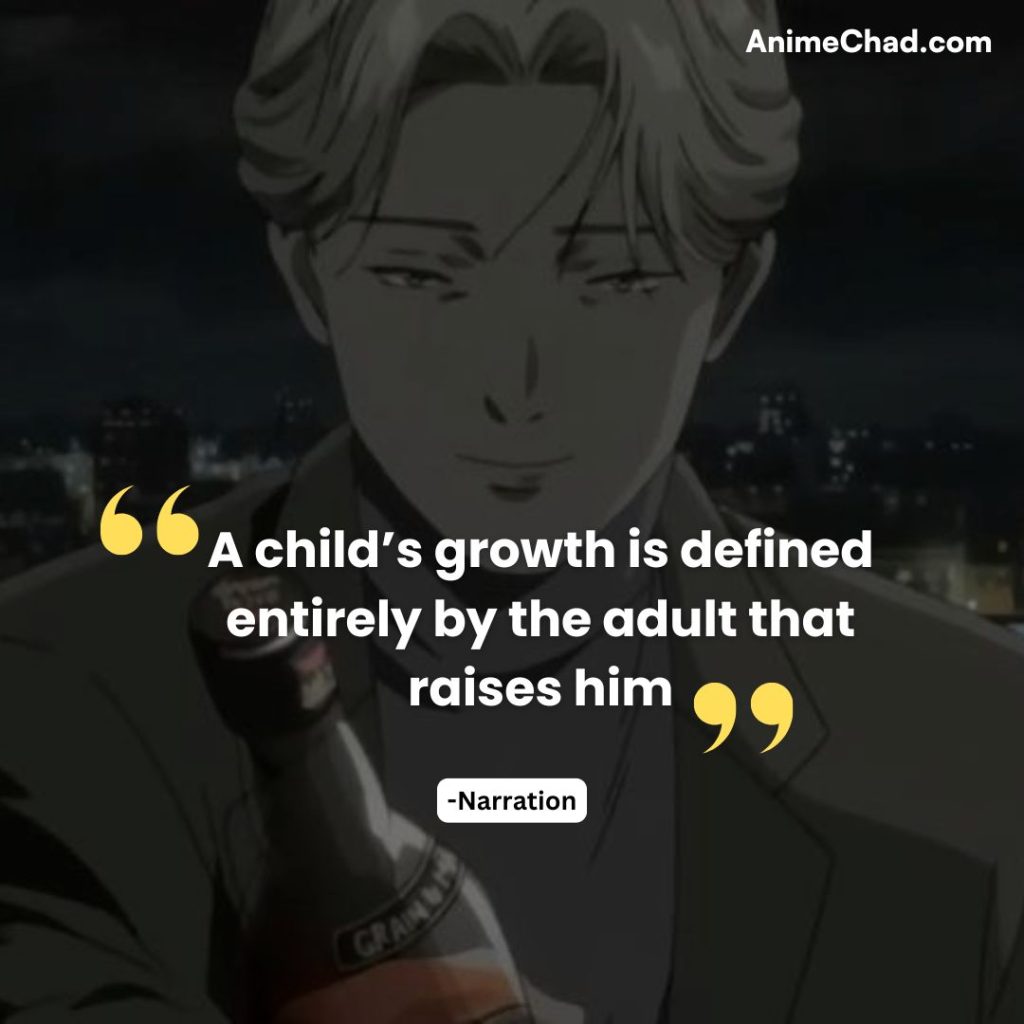
(Episode 16: 511 Kinderheim)
Narration
A commentary on nurture versus nature, central to Monster’s exploration of evil’s origins.
Perfection is in the mind that makes mistakes
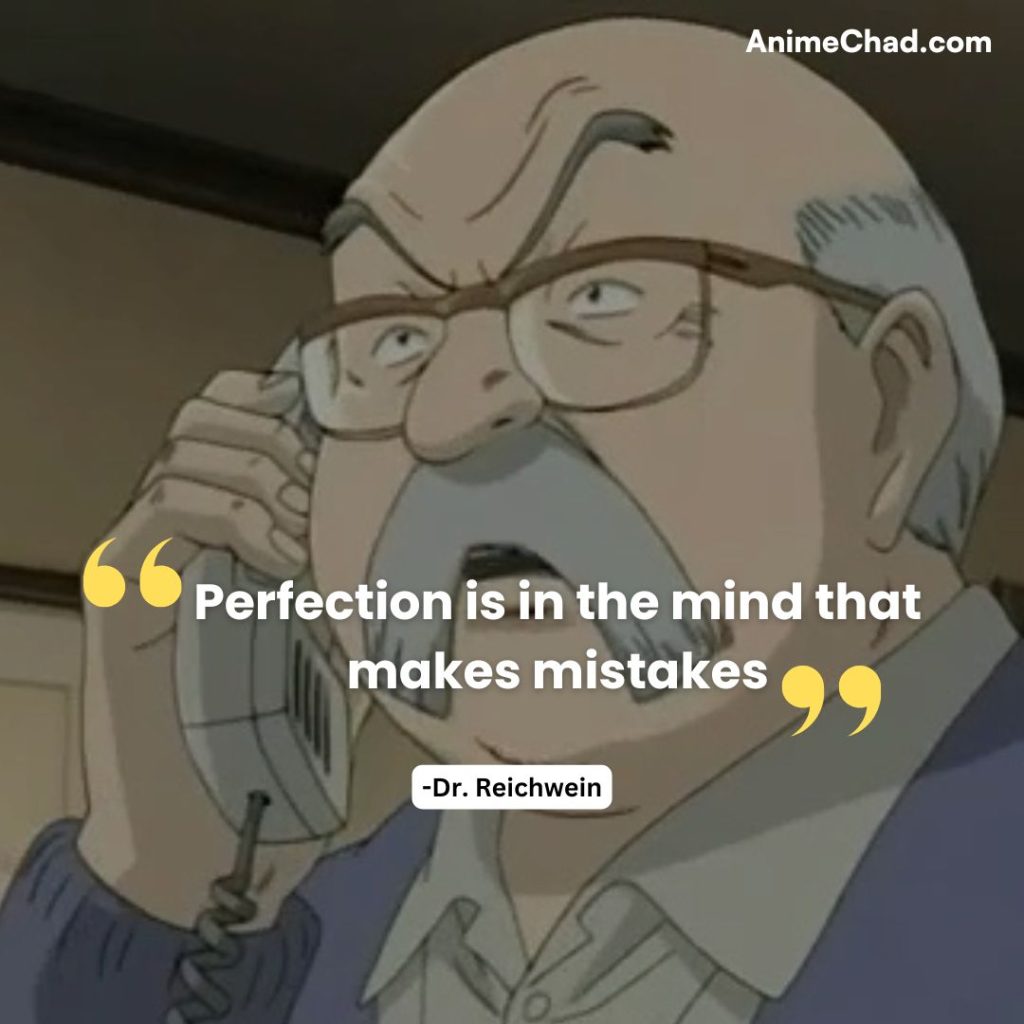
(Episode 44: A Nameless Monster)
Dr. Reichwein
Reichwein’s wisdom about humanity, offering hope amid the series’ darkness.
These quotes capture Monster’s haunting questions about morality, identity, and the nature of evil, reflecting both the darkness and the fragile hope at the heart of its story.
